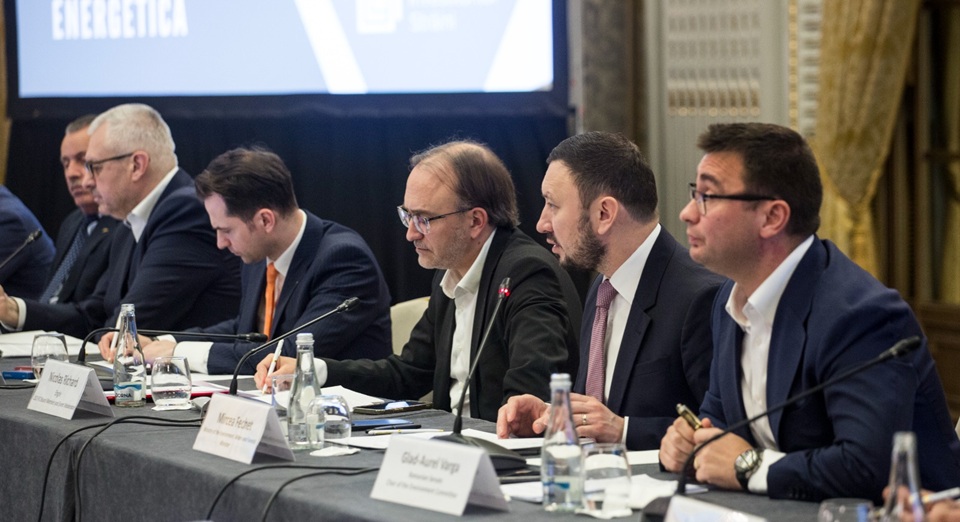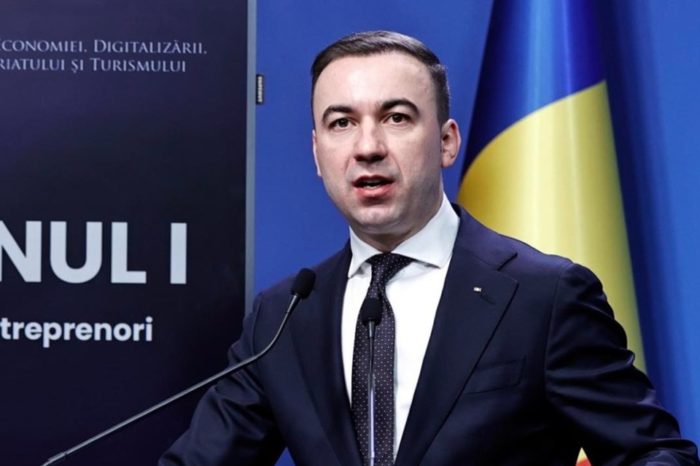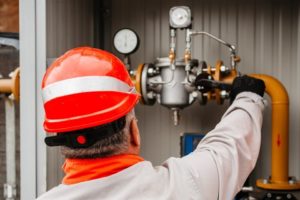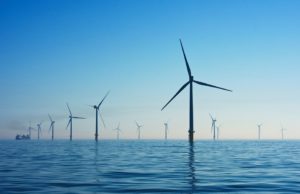The Foreign Investors Council recommends a medium-long-term vision for Romania’s energy strategy

FIC organised an event dedicated to the energy transition, providing a platform for strategic dialogue between decision-makers and representatives of the economic environment. The event brought together investors with the Minister of Energy, Sebastian Burduja, the Minister of Environment, Water and Forests, Mircea Fechet, the President of the Senate Energy Committee, István-Loránt Antal, the President of the Senate Environment Committee, Aurel Varga, and the Vice-President of ANRE, Mircea Man.
The discussion reunited FIC companies from the entire supply chain in the energy sector, producers, suppliers, distributors, large consumers, and financial institutions, with the common goal of proposing strategic directions for developing the energy sector and, implicitly, of the Romanian economy.
The debates were based on the Romanian Energy Sector Study prepared by FIC, an analysis that focuses on the gas and electricity sectors to assess the current state of the market, challenges, and opportunities. The major themes addressed during the event include:
- Liberalization of the energy market: Liberalization, compliance with the principles of the free market, and the rules of fair competition are essential elements to attract investors and to ensure the economic growth and competitiveness of the energy sector in Romania. It is important to ensure a competitive environment for both the energy and industrial sectors through support measures for exposed industries. There is also a need for a redefinition of the vulnerable consumer to include a broader category of people who need support after the price liberalisation.
- Infrastructure investments: Old energy infrastructure needs modernisation to support the energy transition. The study proposes a regulatory framework to stimulate investment in developing electricity and natural gas distribution and transmission networks.
- Promoting sustainability and alternative technologies: Supporting renewables and alternative technologies is essential to ensure a sustainable energy transition and maintain the industry’s competitiveness.
- Ensuring security of energy supply: Romania needs to ensure a sufficient level of production capacity, a balance between supply and demand, and an optimal level of interconnection between EU Member States to guarantee security of energy supply.
The energy sector plays a key role in the economy, having a central function for industrial, commercial, and residential activities. Economic growth deteriorates without a reliable and efficient energy source, as businesses and industries rely heavily on energy to maintain activity and productivity. Moreover, the energy sector is crucial for national security and geopolitical stability. Energy independence increases the country’s economic resilience against global market fluctuations and geopolitical instability.
Romania requires a significant investment effort to rapidly boost the economy and achieve the EU’s climate goals. An integrated approach is essential to support sustainability, renewable and alternative technologies, and greater flexibility for the industry to adapt and remain competitive. According to the latest FIC analyses under the Va Urma project, the additional investment effort required to support the accelerated development of the economy and achieve the net zero target in 2050 is about 34-35% of annual GDP in the period 2024-2030 and about 28-31% of annual GDP in the period 2031-2040.
The representatives of the Government and Parliament shared with the members of the FIC their priorities for the energy transition, emphasizing Romania’s interconnectivity with the other EU states, supporting reindustrialization and recovery of production capacities, prioritizing investments in infrastructure to reduce energy prices, protecting vulnerable consumers, encouraging alternative technologies and sustainability, making specific targets more flexible so that they are wider room for adaptation and greater openness for consultation with the business environment.
The partnership between authorities, companies, and financial institutions is essential for Romania to remain on a sustainable and efficient energy transition trajectory. Romania must show that it is a reliable partner for investors and ensure a more stable and clearer legislative framework, as well as a medium-term vision that provides visibility to make investment decisions in Romania.















